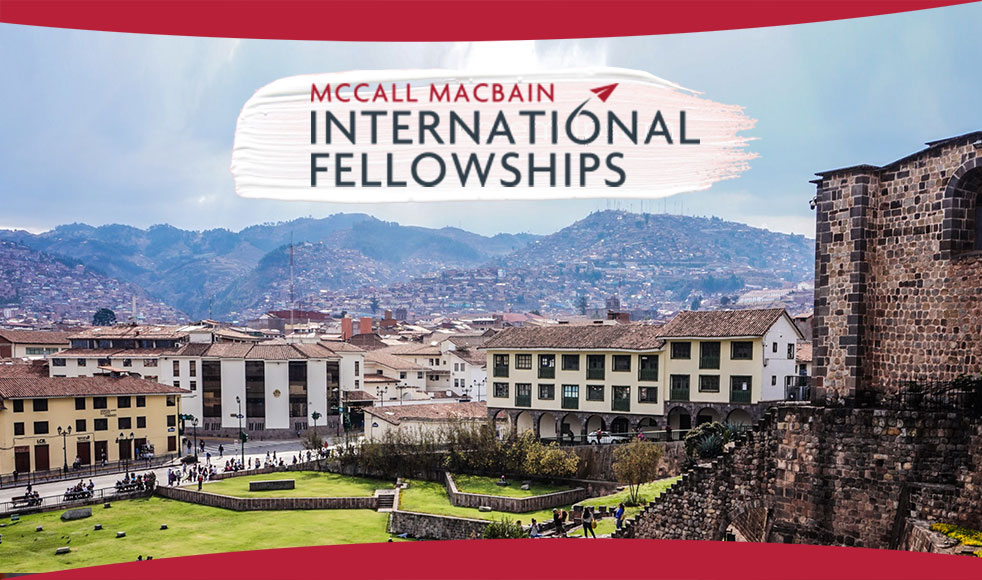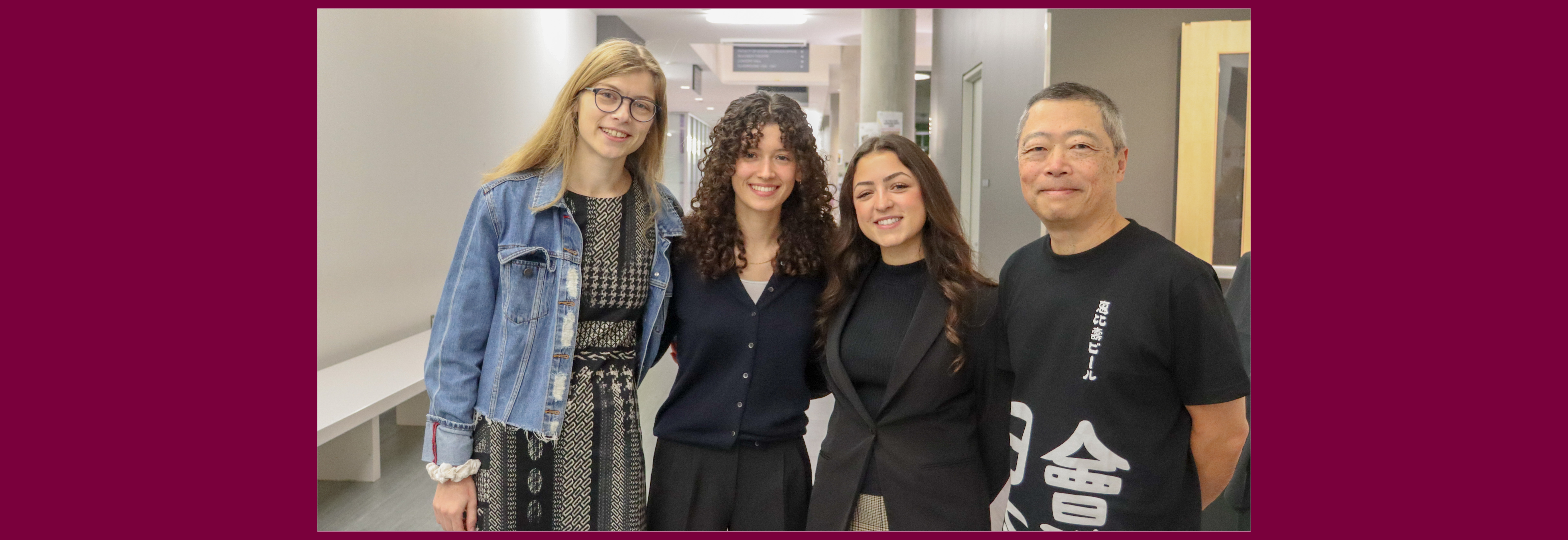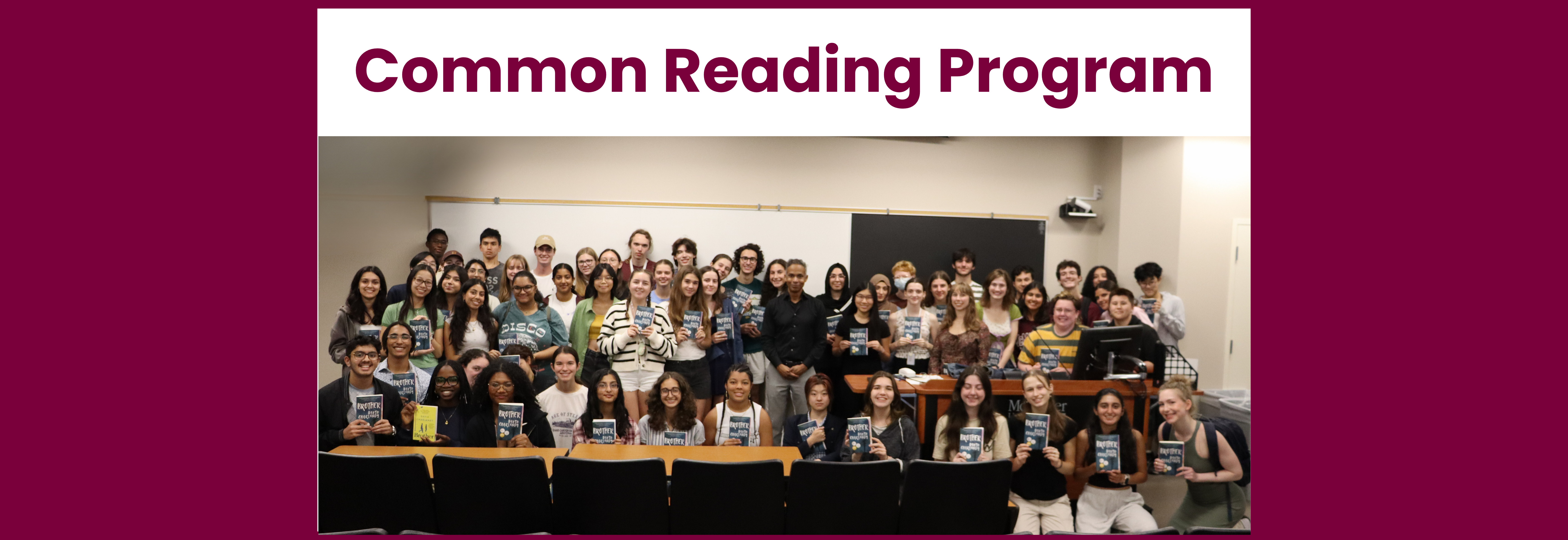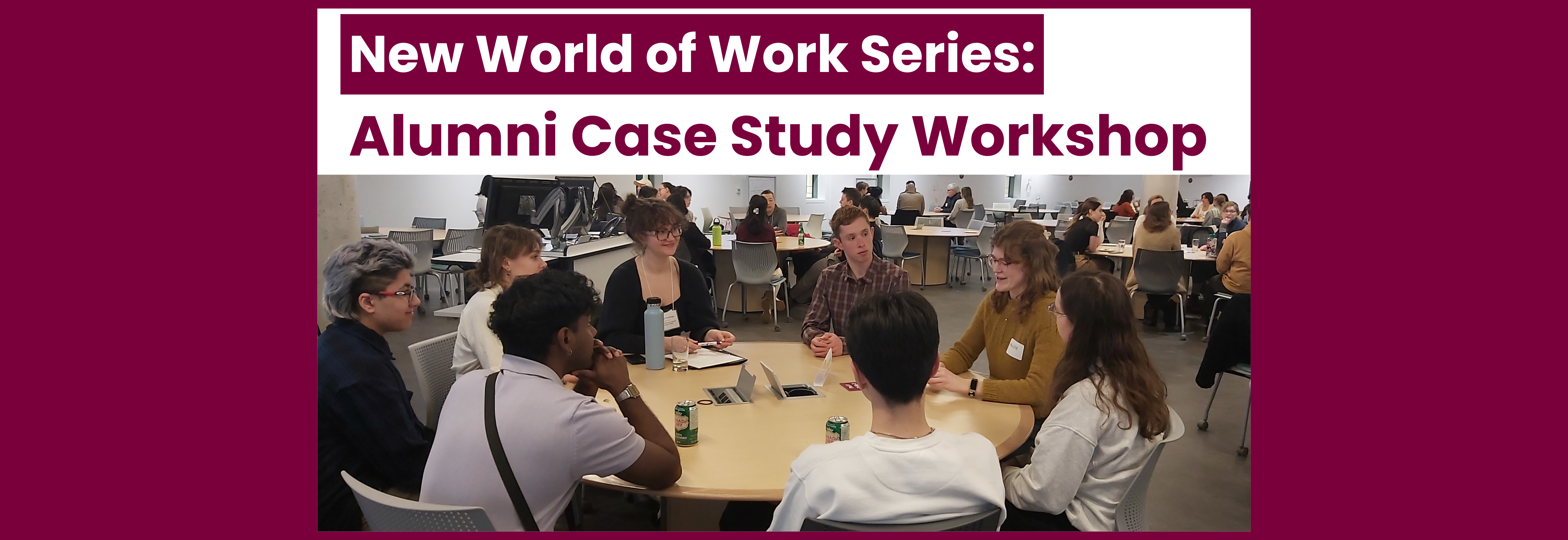Three Artsci Students Embark on a Year-Long International Fellowship

Designed to immerse students in a culture new to them for an entire year, the McCall MacBain International Fellowships aim to nudge their recipients outside of their comfort zones, deepen their cultural understandings, and help them build lasting ties to faraway places.
These once-in-a-lifetime exchange opportunities are being piloted by John McCall MacBain and his wife Marcy, a Mac grad, through their eponymous McCall MacBain Foundation. Each Fellowship awards its recipient $23,500, intended to finance travel arrangements, monthly living expenses, the cost of tuition, language lessons, medical insurance, integration retreats, as well as an in-country mentor.
Of the first 10 McCall MacBain International Fellowships established for McMaster University students, three were won by students in the Arts & Science Program. Faris Mecklai will spend the upcoming year in Uruguay, Kartik Sharma will travel to Argentina, and Tasneem Warwani will study in Lebanon.
Warwani, now entering her fourth year as an Arts & Science student, believes that Artsci students’ success in being awarded these exchange opportunities is due to the symmetry between the Program’s ethos and the goals of the Fellowship.
“Since I began in the Arts & Science Program, we’ve been encouraged to challenge our beliefs and see things from new perspectives,” she explains. “Exchange programs — especially ones like McCall MacBain, where the focus is to immerse yourself in a new culture — are a really unique way to broaden your perspectives and challenge the predominantly Western understanding that we have.”
Broadening her worldview is a big part of why she chose to live and study in Lebanon, but Warwani envisions a future for herself in humanitarian aid. As such, it was important for her to observe one of the world’s most dynamic refugee hubs up close and in person.
“Lebanon is unique in that it borders countries that have dealt with a lot of internal conflict, so they’ve accepted and supported a lot of refugees,” she explains. “Working with organizations that have helped integrate refugees into the Lebanese public systems and understanding why there are many who still live in camps provides a lot of learning opportunities for further advocacy work.”
For Mecklai, embarking on this year-long journey won’t be a completely new experience. While he’s never been to Uruguay, this will be his fourth time moving to a new place alone, having spent time away from his hometown in Vancouver to live in Hamilton, Whitehorse, and Singapore. Each time, he has embraced the experience, but notes that transplanting his life does not come without challenges.
“The hardest thing to do is set up social systems,” he explains. “Friends, medical help, help managing finances, mentors, food, and so on — they’re all things that are readily available to me before I move to a new place, but moving means I have to create these systems again.”
Mecklai, a level-III student, says that while he had his heart set on studying in South America from the beginning, he didn’t have Uruguay on his radar until a good friend suggested it. Her recommendation, coupled with the country’s safety, economic stability, language, ocean adjacency, and advanced LGBTQ+ rights sealed the deal for him.
“With liberalizing social norms and economic potential, I believe that learning such a global language like Spanish in a place of inevitable globalized development will be of great benefit to me, no matter what I do in the future,” he says.
Meanwhile, Sharma will be a border away, studying in Argentina. The level-IV Arts & Science student says that the allure of the Argentine Republic can be found in its geography and history.
“Argentina caught my attention as a beautiful, complicated, and exciting country,” he says. “The nation has a fascinating modern history, and, as someone with a keen interest in politics and economics, I think it will be a really interesting place to live and study. The diversity of experiences that can be had in Argentina also appeals to me — Argentina hosts the cosmopolitan city of Buenos Aires, the Andes mountain range, and the Patagonian region, among many other exciting places.”
The McCall MacBain fellows will have their year away split into three consecutive terms — language development, academics, and work. In the first term, the students will take language courses, live with a host family, and volunteer with a local organization. In the academic term, they will take a full-time course load at a local university, including some courses taught in their newly learned language. In the final term, they will secure full-time employment or a full-time internship.
While all three students see great value in all three terms, they are unanimously excited for the work term. Sharma, who has been conducting policy-related research with the McMaster Health Forum, is excited to continue that type of work at a Buenos Aries-based think tank. Mecklai, on the other hand, is looking forward to experiencing more than just life in Uruguay — he wants to understand what it’s like to be Uruguayan, and he believes that the work term will best allow him to do so. Warwani, meanwhile, says that taking the culmination of what she learns in the first two terms and applying it all to a professional setting is an exhilarating growth opportunity for her and her fellow recipients.
“Working in a country where you speak the language and understand the culture is already challenging,” she says. “So, I think working in a country where the language and culture are different is a great way to experience both personal and professional growth.”
The students embarked on their Fellowships at the end of August and will return to McMaster in the summer of 2020.
Experiential Learning, StudentsRelated News
News Listing

Students Reflect on New World of Work Event
Alumni, Artsci, Experiential Learning, Students
November 21, 2024

Author inspires Arts & Science students to tell their stories
Artsci, Events, Experiential Learning, Students
October 4, 2024

2024 New World of Work Series Event
Alumni, Artsci, Experiential Learning, Students
September 10, 2024
